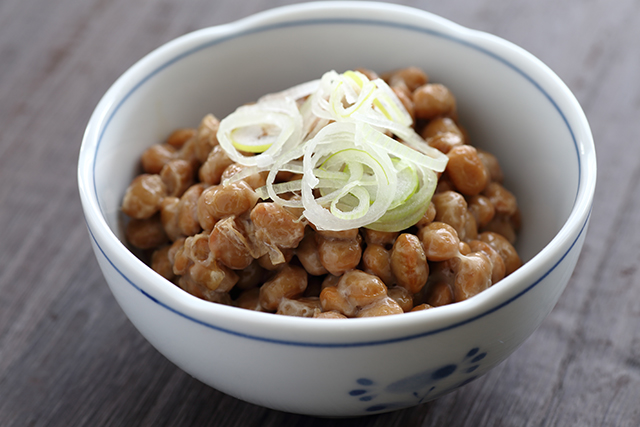
Published Tuesday, July 13, in the journal Biochemical and Biophysical Research Communications, the study showed that unheated natto extract degraded the receptor-binding domain (RBD), a key region of the spike protein that studs the outer surface of SARS-CoV-2.
The RBD is especially important because the virus uses it to anchor to a receptor on the surface of certain cells before infecting them.
Moreover, the researchers confirmed that the unheated natto extract had the same effects on the RBD of some of the mutated strains of SARS-CoV-2, particularly the alpha variant. This variant was first detected in the United Kingdom in September 2020. It was then detected in the U.S. three months later.
Natto extract degrades key region of SARS-CoV-2 spike protein
Natto is a traditional Japanese dish made by fermenting soybeans with Bacillus subtilis, a bacterium typically found in soil and vegetation. It is a staple in the diets of people who are least likely to die from stroke and cardiovascular disease, which is why it is thought to contribute to longer, healthier lives across Japan.
For their study, the researchers examined whether natto can impair infection by SARS-CoV-2 and bovine herpesvirus 1 (BHV-1), a major pathogen of cattle that causes severe respiratory infection.
The researchers prepared two natto extracts. One of the extracts was heated at 100 degrees Celsius for 10 minutes. They applied the extracts to sets of lab-cultured cells from cattle and humans. One set of human cells was infected with SARS-CoV-2 and one set of cattle cells was infected with BHV-1.
The results showed that SARS-CoV-2 and BHV-1 lost the ability to infect cells when treated with the unheated natto extract. However, treating the viruses with the heated extract had no effect.
The researchers attributed the effects of the unheated natto extract on the viruses to proteases – proteins that metabolize other proteins – in the extract but further studies are needed to confirm this.
According to co-author Tetsuya Mizutani, director of the Center for Infectious Disease Epidemiology and Prevention Research at the Tokyo University of Agriculture and Technology, the proteases in the extract appeared to "digest" the RBD on the spike protein of SARS-CoV-2.
It appears that heating the extract causes the proteases to break down and lose their ability to digest the RBD, thereby allowing the virus to remain infectious, added Mizutani.
For SARS-CoV-2 to infect human cells, the RBD on the spike protein must anchor to the host receptor protein called angiotensin-converting enzyme 2 (ACE2). ACE2 is an enzyme attached to the membrane of cells in the intestines, kidney, gallbladder and heart. It is also found on the surface of pneumocytes – cells that line the tiny air sacs in the lungs (alveoli) that take up the oxygen you breathe in.
Moreover, ACE2 can be found on the surface of endothelial cells, which are present in arteries, capillaries and veins. (Related: Cucumbers suppress inflammation in vascular endothelial cells.)
By degrading the RBD of the spike protein, the natto extract impairs the virus's ability to infect cells.
Despite their promising results, Mizutani warned that more studies are needed to identify the exact molecular mechanisms behind the effects of unheated natto extract on SARS-CoV-2. He emphasized that their study does not provide evidence that simply eating natto prevents COVID-19 infection.
Although there are vaccines for COVID-19, it's unclear whether they're effective against every variant of SARS-CoV-2, said Mizutani. There are also reports of people still getting infected despite being fully vaccinated. "[We] need to make treatments for those who develop COVID-19," he added.
Go to FoodScience.news to learn more about foods that can help combat viral infections.
Sources include:
Please contact us for more information.





















